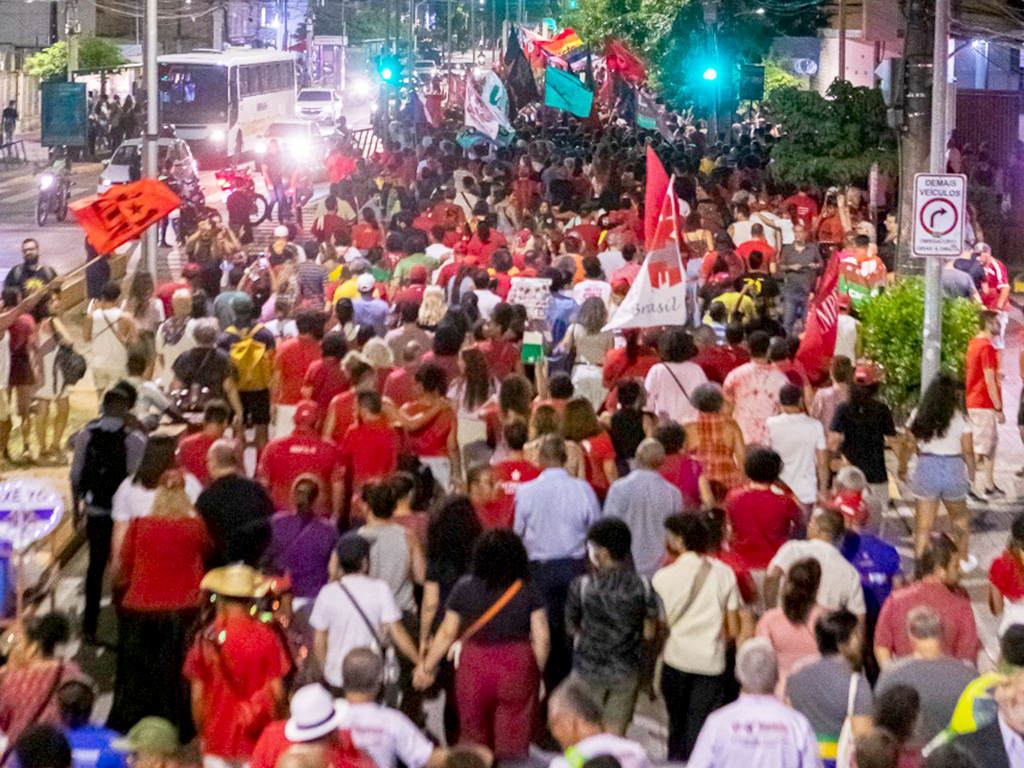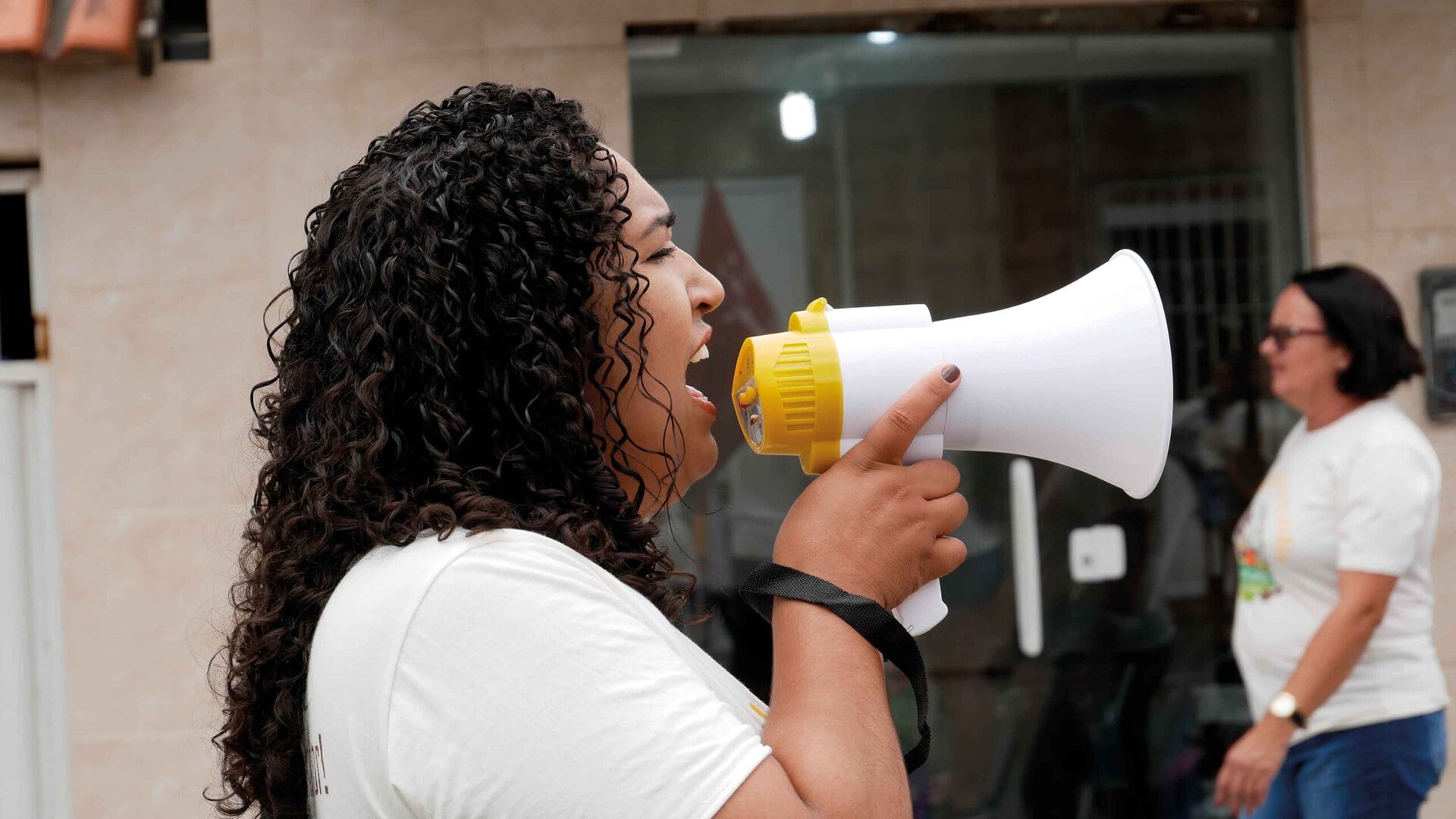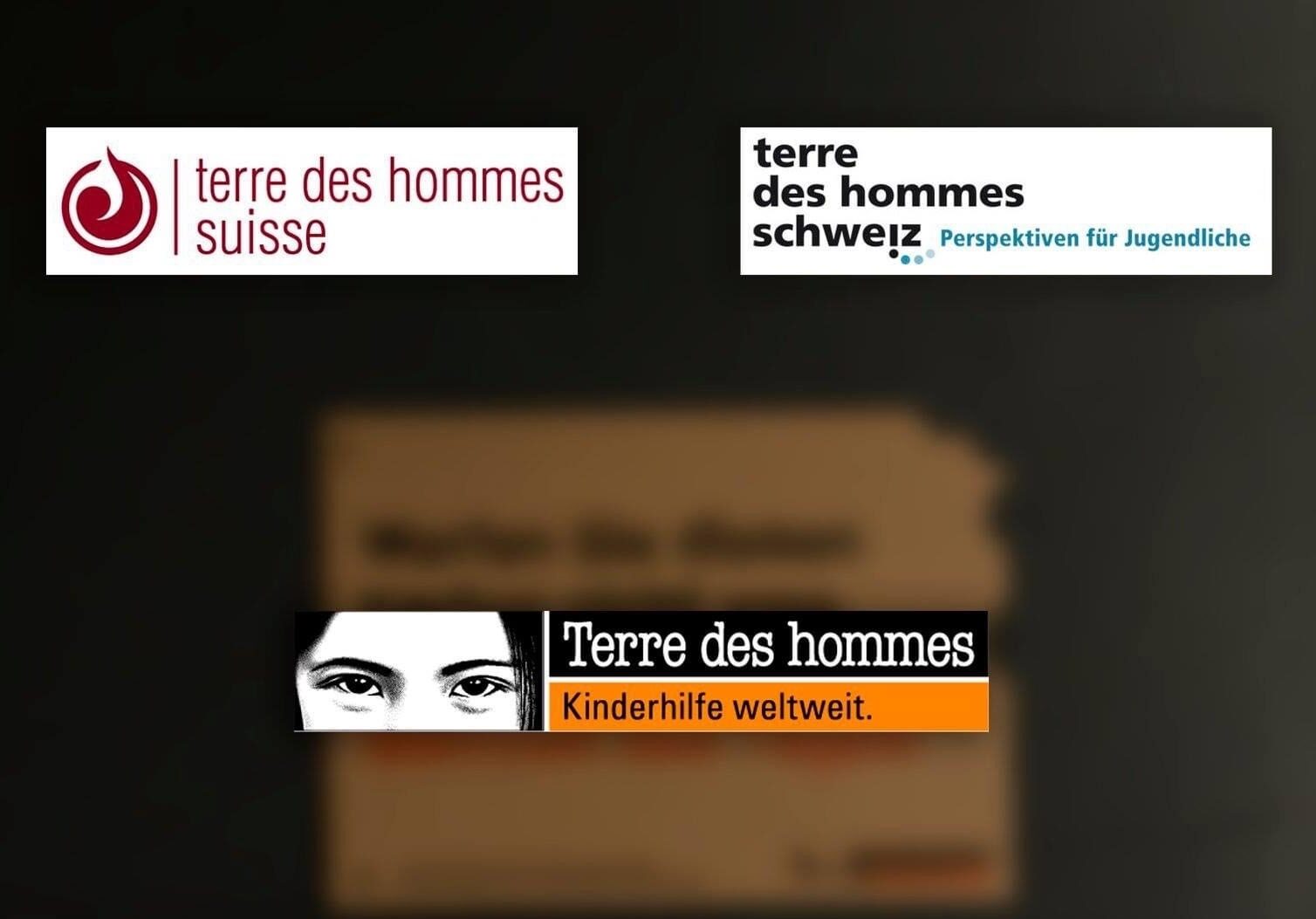With the storming of the Brazilian parliament, the presidential palace and the Supreme Court on January 8, 2023, the worst fears of violence in the wake of the presidential handover have been confirmed. Social polarization has reached a level where the hatred that has been stirred up over the years is breaking out in violent riots. What do these developments mean for the Brazil program for terre des hommes schweiz?
An alarm signal for the whole world
Our partner organizations were already reporting on the very tense situation in the run-up to the elections at the beginning of October. Even after there were no violent riots on election day itself, the fear of violent riots persisted. With the events of 8 January, the degree of organization and penetration of state institutions by right-wing extremist groups became apparent.
Throughout his time in office, Jair Bolsonaro has stirred up social division and hatred with inflammatory speeches. His extreme supporters seem ready for anything. It is particularly worrying to see how the events resemble the storming of the Capitol in the USA: a sign of how well the global right is networked and learns from each other. An alarm signal for the whole world.
The risks of ex-President Bolsonaro’s arms policy, which terre des hommes schweiz has been critically analyzing for years, are now obvious. During his time in office, more than 40 decrees were published that facilitate the purchase of weapons. The number of registered weapons owned by civilians has more than tripled to 1,300,000 since 2019. The pro-gun discourse propagated by Bolsonaro has made authoritarian and anti-democratic tendencies acceptable. Extremist groups that propagate the individual’s right to self-defense and advocate anti-democratic positions have been strengthened. The liberalization of gun laws made it easier for right-wing extremist groups to arm themselves. From today’s perspective, it appears to be part of Bolsonaro’s strategy to build up an armed support group that will defend his interests by force if he loses power.
The fear of further destabilization is great. This makes it all the more important that we now support the democratic forces of Brazilian civil society. At this risky moment, nothing less is at stake than the defense of democracy in a country that is deeply divided.
Promoting a culture of peace
With our culture of peace programme, our partner organizations are committed to a culture of debate that counteracts the strong tendencies towards polarization and the fuelling of social division. In order to counter the tendencies towards polarization, there needs to be a respectful exchange between people and groups with different opinions. To support this exchange, spaces for dialog must be created.
Our training courses teach young people how to stand up for their rights in a non-violent way and how democratic and participatory decision-making processes work. In the projects, young people are encouraged to participate in youth councils at national and local level. In this way, young people can actively participate in political decision-making processes and learn how to promote a culture of peace through politics.
Protecting human rights defenders
Brazil is the fourth country in the world, after Colombia, Mexico and the Philippines, where the most human rights defenders are killed. According to a UN survey, 1,323 human rights and environmental activists were murdered between 2015 and 2019, 174 of them in Brazil, which puts the country in second place on the list of the most dangerous countries for human rights defenders.
terre des hommes schweiz is committed to the protection of activists in its Brazil program. Since the persecution of human rights defenders has increased significantly under Bolsonaro’s government, we have stepped up our training programmes on protective measures and security training for our employees and partner organizations.
Strengthening civil society’s scope for action
Since democratization at the end of the 1980s, a diverse, well-structured and well-networked civil society has developed in Brazil. Thousands of organizations are committed to upholding human rights, social justice and basic democratic rights. However, the increasing political polarization has severely restricted civil society’s scope for action. During Bolsonaro’s time in office, non-governmental organizations were increasingly subjected to slander, threats or even attacks if they took a clear stance against the interests of the government. Many important government programs were cut.
At this critical moment, the democratic forces of Brazilian civil society urgently need our unconditional support and solidarity. In view of the frightening international networking of violent right-wing extremist movements, it is important to defend basic democratic values by peaceful means everywhere in the world.



